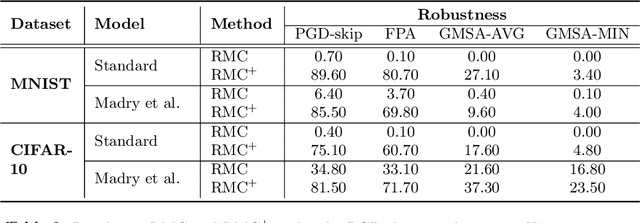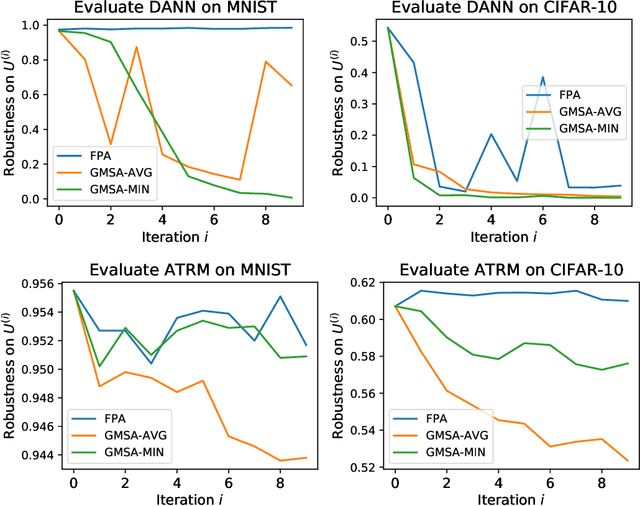Towards Adversarial Robustness via Transductive Learning
Paper and Code
Jun 15, 2021



There has been emerging interest to use transductive learning for adversarial robustness (Goldwasser et al., NeurIPS 2020; Wu et al., ICML 2020). Compared to traditional "test-time" defenses, these defense mechanisms "dynamically retrain" the model based on test time input via transductive learning; and theoretically, attacking these defenses boils down to bilevel optimization, which seems to raise the difficulty for adaptive attacks. In this paper, we first formalize and analyze modeling aspects of transductive robustness. Then, we propose the principle of attacking model space for solving bilevel attack objectives, and present an instantiation of the principle which breaks previous transductive defenses. These attacks thus point to significant difficulties in the use of transductive learning to improve adversarial robustness. To this end, we present new theoretical and empirical evidence in support of the utility of transductive learning.
 Add to Chrome
Add to Chrome Add to Firefox
Add to Firefox Add to Edge
Add to Edge